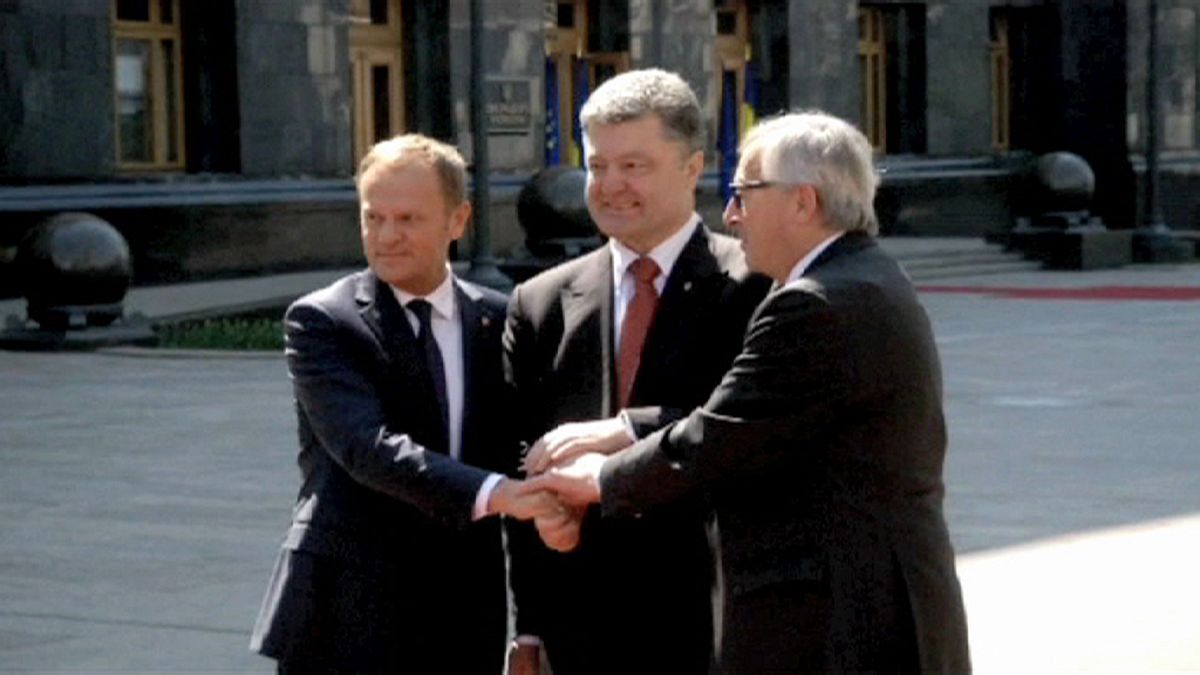EU heads Jean-Claude Juncker and Donald Tusk have been meeting with the Ukrainian president Petro Poroshenko in Kyiv. They were there for the first
EU heads Jean-Claude Juncker and Donald Tusk have been meeting with the Ukrainian president Petro Poroshenko in Kyiv. They were there for the first round of talks since the signing of a key association agreement in June of last year.
Speaking at a press conference after the meeting, European Council president Tusk promised support but pushed for major reforms:
“Europe can not do the hard job for you,” he told the Ukrainian delegation. “It is for you and only for you, the Ukrainian nation and its government and parliament, to do the hard work of reforming Ukraine, to make Ukraine a more prosperous, a more just and a more fair country.”
But Poroshenko insisted that his country is on the right track and says it will be ready to apply for EU membership within five years.
“We demand an objective assessment of the work of the Ukrainian team. the thesis that Ukraine is lagging behind in reforms is not completely objective and is not entirely true,” said Poroshenko.
Before the talks, Tusk laid a wreath near Kyiv’s Maidan Square to honour the victims of last year’s pro-European protests that toppled former leader Viktor Yanukovich.
But as violence escalates in eastern Ukraine the EU says it can not intervene.
“The EU still doesn’t have a political plan on how to de-escalate the conflict in Donbass,” says euronews correspondent Dmztro Polonsky reporting from Kyiv. “And Brussels is not ready to heed Poroshenko’s call to send EU peacekeepers to the region.”


